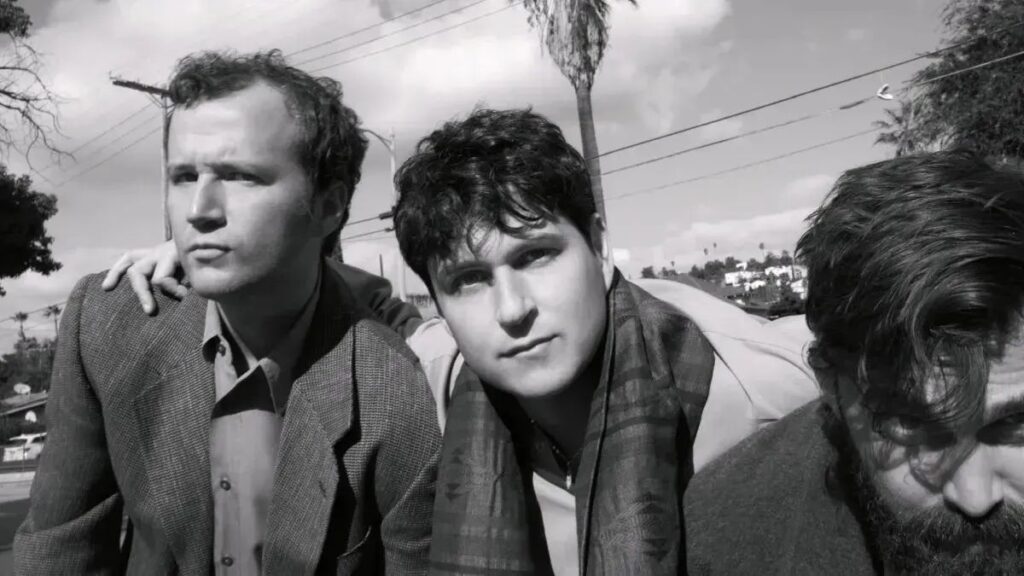For a while, Vampire Weekend’s colorful sound evoked the cultural melting pot of New York City. Their Columbia University origin story, the disparate musical influences that included African percussion and classical harpsichord, the references to the Hudson River, skyscrapers, and “hot garbage and concrete” — each sonic and lyrical detail felt cherry picked to reflect the inspiring grandeur of the Big Apple.
Now, after a California-esque detour on Father of the Bride, Vampire Weekend return to New York City on Only God Was Above Us, their fifth album. This time, however, the city isn’t looking — or sounding — like it used to. Only God Was Above Us is Vampire Weekend’s most bittersweet album, with an emphasis on the bitter.
Get Vampire Weekend Tickets Here
The trio, comprised of Ezra Koenig, Chris Thomson, and Chris Baio, revisit the sounds that characterized their first three albums and darken them; the hopeful sentiments ridden throughout become muddied by cacophonous noise or the touch of the odd. There are the usual virtuosic piano and guitar lines that have made their way into each Vampire Weekend album, but they’re brought together with offsetting rhythms and melodies — each moment of musical elegance paired with distortion or doubt.
Indeed, there is a heaviness to the Vampire Weekend sound that hasn’t ever really happened before. It’s as if they’ve returned to the city attempting to reclaim their lost youth, but they’re less concerned with any physical locations as they are with the pain, anguish, and uncertainty that dominates the environment.
From the very beginning, Koenig references nihilism floating undetected within the city walls. He tries to revisit the past via old New York aristocrats, public figures, and the Lincoln Tunnel, but none whose presence continues to loom throughout the urban landscape. The album’s cover and title refers to a news article depicting a moment of terror — a structural failure on an aircraft that resulted in its roof being torn off. Meanwhile, as an unseen figure reads about it on the subway, someone is walking sideways. It’s a fitting image given the noisy, chaotic backdrop of both album and city, and it seems that unnerving feeling of change has gotten to Koenig and co.
Some of the tracks retain the youthful spirit they emerged with over 15 years ago — “Prep School Gangsters” could have easily landed on either of their first two albums, with boyish yelps from Koenig, sly class commentary, and an intricate guitar line that feels like it’s always existed in Vampire Weekend’s discography. “Classical” is also one of their best songs, a passionate ode that begs the question: When all of this goes away, will we be cruel to each other or kind?

